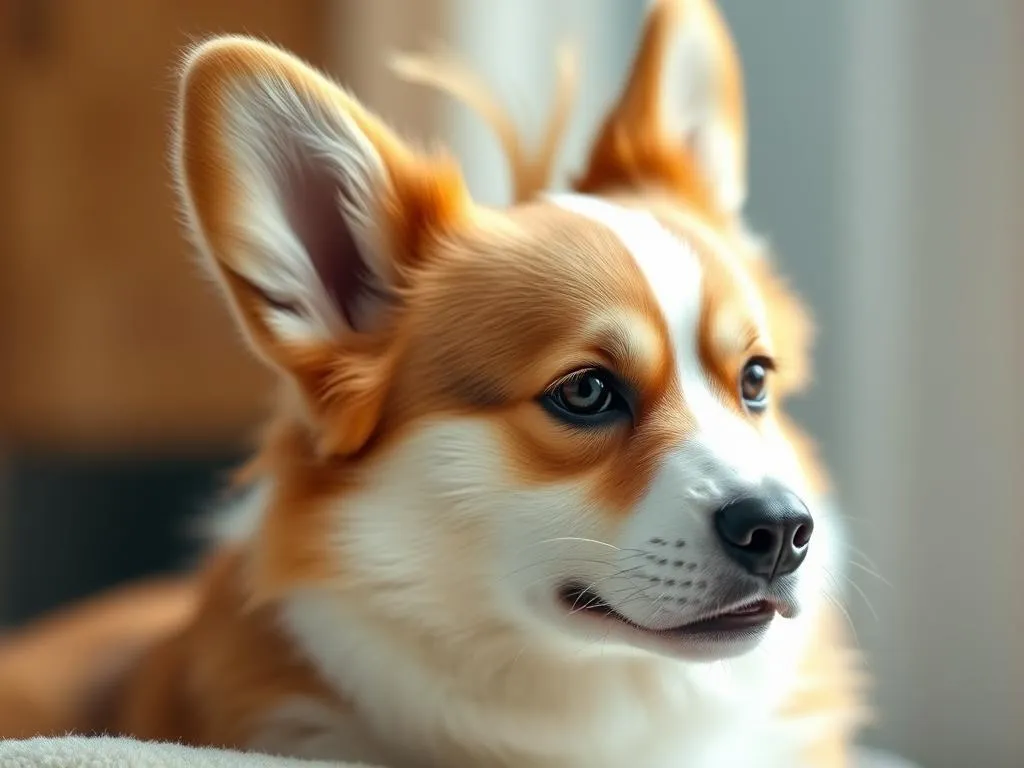
Introduction
Corgis are beloved for their charming personalities and distinctive appearances. Among the most popular breeds are the Pembroke Welsh Corgi and the Cardigan Welsh Corgi, both known for their short legs and long bodies. Despite their similarities, these two breeds have unique coat types and grooming needs, making it essential for Corgi owners to understand how to care for their furry friends effectively.
Grooming is vital for Corgis, not only for aesthetic purposes but also for their overall health and comfort. One of the most common questions that Corgi owners ask is, “Does my Corgi need a haircut?” This question can be complex, as it depends on various factors, including the specific breed, coat type, and individual needs of the dog.
In this article, we will explore the grooming needs of Corgis, how to determine whether your Corgi requires a haircut, and the best practices for maintaining their coat. Let’s dive into the fascinating world of Corgi grooming!
Understanding Corgi Coat Types
Pembroke Welsh Corgi
The Pembroke Welsh Corgi is known for its short, dense double coat, which consists of a soft undercoat and a longer outer coat. This breed typically has a slightly longer coat than the Cardigan. Common colors include red, sable, fawn, and black and tan, often with white markings. The texture of their fur is coarse and water-resistant, making it ideal for various weather conditions.
Cardigan Welsh Corgi
In contrast, the Cardigan Welsh Corgi also sports a double coat but tends to have a thicker undercoat and a longer outer coat than the Pembroke. The colors of this breed are more diverse, including brindle, blue merle, and red, among others. The texture can vary from straight to slightly wavy, providing a unique appearance that distinguishes them from their Pembroke cousins.
Comparison of Coat Types
Both breeds shed, but the amount and frequency can vary. Corgis typically undergo a heavier shedding cycle during seasonal changes. Grooming needs differ as well, with Pembrokes often requiring more frequent brushing due to their longer coats. Understanding these differences is crucial for effective grooming.
Grooming Needs of Corgis
Importance of Grooming
Grooming is essential for maintaining your Corgi’s health. Regular brushing helps to remove loose hair and dirt, preventing mats and tangles. It also promotes healthy skin by distributing natural oils throughout the coat. Additionally, grooming can strengthen the bond between you and your Corgi, providing a relaxing and enjoyable experience for both.
Frequency of Grooming
To keep your Corgi looking its best, a regular grooming schedule is necessary. Here are some general recommendations:
- Brushing: At least once a week, more frequently during shedding seasons (spring and fall).
- Bathing: Every 6 to 8 weeks, or as needed, depending on their activity level and exposure to dirt.
- Nail Trimming: Every 3 to 4 weeks to prevent discomfort and maintain proper foot health.
Seasonal changes may necessitate adjustments to your grooming routine, particularly during heavy shedding periods.
Tools for Grooming
Having the right tools can make a significant difference in your grooming experience. Here are some essential items for Corgi grooming:
- Brushes: A slicker brush or undercoat rake is ideal for removing loose hair and preventing mats.
- Shampoos: Use a gentle, dog-specific shampoo for bathing. Look for products that promote skin health.
- Nail Clippers: Invest in a quality pair of clippers designed for small to medium-sized dogs.
These tools will help you maintain your Corgi’s coat effectively.
Does My Corgi Need a Haircut?
Understanding When Haircuts are Necessary
While Corgis do not typically require regular haircuts like some other breeds, there are scenarios where a trim may be beneficial. Signs that indicate a haircut may be needed include:
- Excessive Matting: If your Corgi’s coat has developed mats that brushing cannot resolve, a trim may be necessary.
- Length of Fur: If the fur is too long and affecting your dog’s comfort or mobility, a haircut can help.
- Seasonal Changes: Some owners choose to give their Corgi a light trim in summer to help them stay cool.
It’s essential to differentiate between a trim and a full haircut, as the latter can drastically alter the dog’s appearance and may not be recommended for Corgis.
Factors to Consider
When deciding whether your Corgi needs a haircut, consider the following factors:
- Age and Health: Puppies and older dogs may have different grooming needs. Health issues can also impact how often you should groom your Corgi.
- Lifestyle and Activity Level: Active Corgis that spend a lot of time outdoors may require more frequent grooming than indoor pets.
- Climate Considerations: If you live in a hot climate, a trim might help your Corgi stay comfortable, while colder climates may necessitate maintaining the coat’s length for warmth.
Professional Grooming vs. DIY Grooming
Both professional grooming and DIY grooming have their pros and cons. Professional groomers can provide expert care and techniques, particularly if your Corgi has extensive matting or requires specialized grooming. However, DIY grooming can save costs and allow you to bond with your pet during the process.
Consider seeking professional help if:
- You are unsure how to handle mats or tangles.
- Your Corgi is anxious or aggressive during grooming.
- You want a specific style or trim that you cannot achieve at home.
Tips for Grooming Your Corgi
Techniques for Effective Grooming
To make grooming a positive experience for both you and your Corgi, follow these steps:
- Create a Calm Environment: Choose a quiet area with minimal distractions.
- Use Positive Reinforcement: Reward your Corgi with treats and praise during and after grooming.
- Brush Gently: Start with a slicker brush, working from the head to the tail to prevent discomfort.
- Check for Mats: Pay special attention to areas prone to matting, such as behind the ears and under the legs.
- Trim Carefully: If you need to trim, use dog-specific scissors and be cautious around sensitive areas.
Maintaining a Healthy Coat
A healthy coat starts from the inside out. Here are some nutritional considerations:
- Quality Diet: Feed your Corgi a balanced diet rich in omega fatty acids to promote a shiny, healthy coat.
- Regular Vet Checkups: Schedule routine visits to monitor for skin issues or parasites that could affect coat health.
Dealing with Shedding
Shedding is a natural process for Corgis, but it can be managed with these best practices:
- Regular Brushing: Consistent brushing will help remove loose hair and minimize shedding around the house.
- Vacuuming: Invest in a good vacuum cleaner designed to handle pet hair.
- Fur Removers: Use lint rollers or specialized pet hair removers to keep furniture and clothing free of hair.
Common Myths About Corgi Haircuts
Myth: Corgis Should Always Be Shaved
Shaving a Corgi is not recommended. Their double coat serves as insulation against both cold and heat. Removing this coat can lead to skin issues and disrupt their natural temperature regulation.
Myth: Haircuts Will Prevent Shedding
While regular grooming can help manage shedding, it does not eliminate it entirely. Shedding is a natural process for Corgis, and the best way to control it is through consistent grooming and care.
Myth: All Corgis Need Regular Haircuts
Each Corgi is unique, and grooming needs can vary based on factors such as coat type, lifestyle, and health. It’s crucial to assess your individual Corgi’s needs rather than following general rules.
Conclusion
In summary, grooming is an essential aspect of Corgi care that goes beyond mere aesthetics. Understanding the unique grooming needs of your Corgi, whether a Pembroke Welsh Corgi or a Cardigan Welsh Corgi, will help you make informed decisions about when and how to groom them. While Corgis do not typically require regular haircuts, there are circumstances where a trim may be beneficial.
By regularly grooming your Corgi, you can maintain their coat’s health, prevent mats, and strengthen your bond. Remember to consider individual factors such as age, lifestyle, and climate when assessing your Corgi’s grooming needs. Through careful attention and understanding, you can ensure your Corgi remains healthy, happy, and looking its best!









